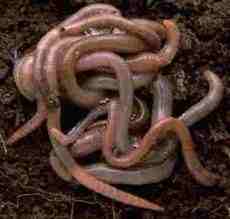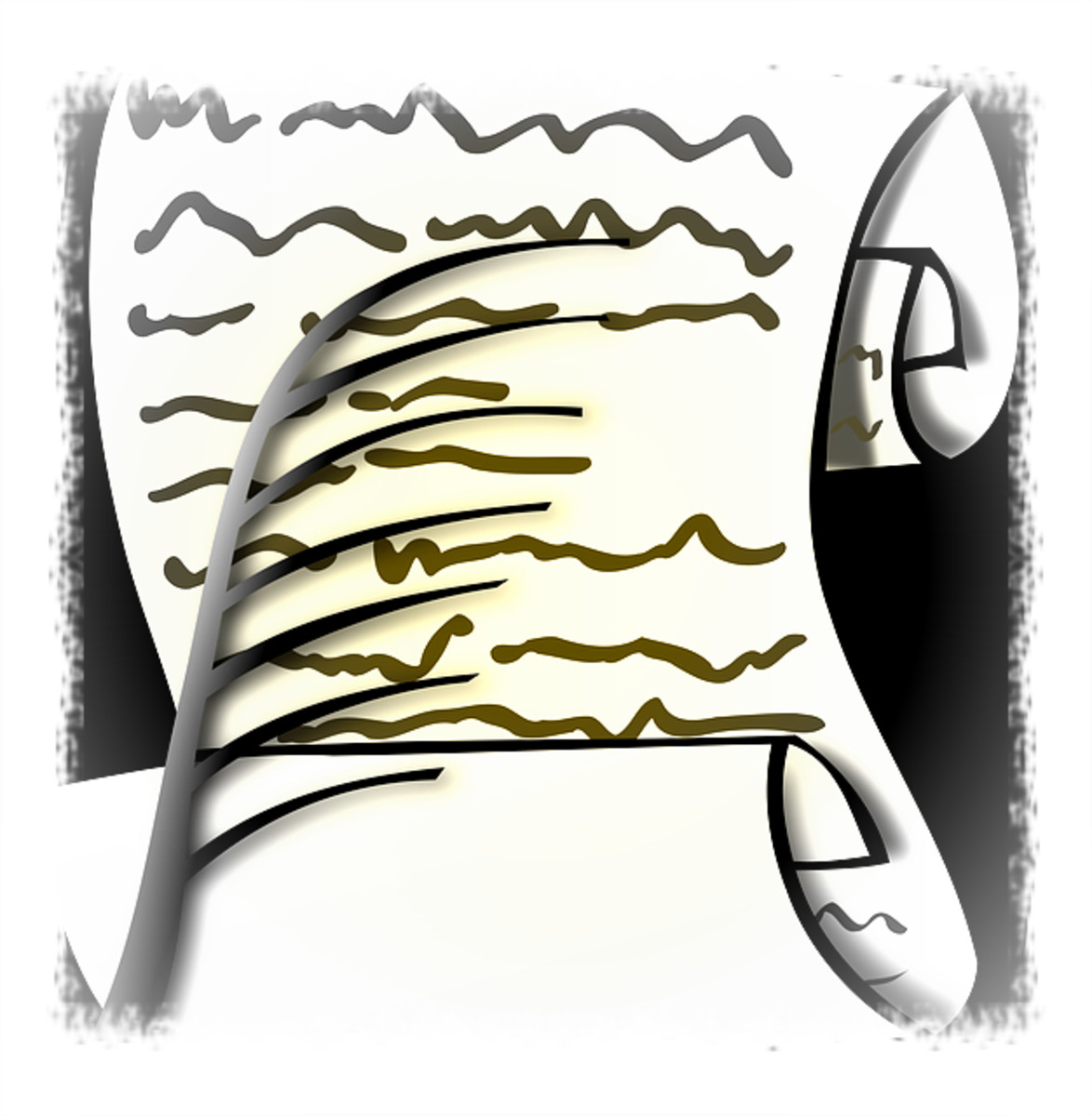Answering Our Poets in Your Own Verse
Poor Lumbricus Terrestris (earthworms) They are great friends!

Poetry is a marvellous art form to play with
Answering Our Poets in Your Own Verse.
Although a lot of it is crude in that it obeys the internal rhythms and forces of the author, rather than any traditional meter or form, we are lucky to have many aspiring - or established - poets publishing their work on HP.
Much poetry, ever since the days of Gilgamesh, is a vehicle carrying the emotions of the composer: euphoria, misery, philosophical insight, humor and all the rest. Poetry, indeed, predated other writing and can be found more than 5,000 years ago as early man attempted to communicate his feelings to the small tribe he lived in.
Poetry can be quite a maze for the reader as well as he/she attempts to root out the hidden meanings; often very obscure. We also ride along enjoying any of the devices the author has used, such as assonance, alliteration, onomatopoeia and rhythm in order to make her perhaps prosaic message into an art form. (Onomatopoeia is the study of arranging the letters in a word, sound like its "sound." i.e., cuckoo).
All these devices come under the loose heading of Prosody - the mechanics of verse: meter, rhythm and intonation, etc.
Memorable poetry has been written by poets who have never studied the art, in fact, most of the great works paved the way for legions of imitators who eventually found their own ’voice.
One reason for poets from the past not to have studied available information on their hobby, or even life dedication, is there was no available information. The man on the street only possessed rudimentary reading and writing skills; most published work was only available to accredited scholars and the clergy: they, in fact, wrote most of it before the eighteenth century.
But today there is no need to blindly burst into poetic song. Libraries and the Internet carry just about every poem of any note at all ever written. Just typing the first line or the author’s name into Google (etc.) will usually reward with hundreds of hits.
Please excuse the long-winded intro into the specifics of what I originally set out to say today. It is that one of the most fun ways to read poetry and have a go yourself immediately afterwards is to "answer" the poet, who, although often long dead, has left his work behind to be enjoyed and criticized and could hardly object even if granted a furlough from Heaven or, in the case of many poets I suspect, the other place.
Here is one such I wrote in humorous reply to one of Robert Frost’s great poems. First, the original:
Stopping by Woods on a Snowy Evening.
Whose woods these are I think I know.
His house is in the village, though;
He will not see me stopping here
To watch his woods fill up with snow.
My little horse must think it queer
To stop without a farmhouse near
Between the woods and frozen lake
The darkest evening of the year.
He gives his harness bells a shake
To ask if there is some mistake.
The only other sound's the sweep
Of easy wind and downy flake.
The woods are lovely, dark, and deep,
But I have promises to keep,
And miles to go before I sleep,
And miles to go before I sleep.
Such a simple poem, isn’t it? Yet it is one of the most read in the English language and the most revered, too
I thought. Mmmm: that’s fine for the poet all muffled up; protected from the weather, but what about the poor old dray horse, I bet he is thinking of his warm stable and could give a fig for Frost’s dark reflections, as Frost had mentioned. So:
A ‘Frosty reply to Bob
Why does he stop and ponder here?
There is no house nor warm place near.
Why are we standing in the snow?
Can’t he feel it; doesn’t he know?
I must confess I think it’s rare,
For him to stop thus, just to stare.
These icy draughts; that frozen lake,
I’m like a dray mare at a wake!
I think I’ll try to let him see
How my poor hooves are killing me:
Stamp and shake the harness bell,
To let him know that all’s not well.
You think he finds it pretty here?
Not for me; it’s cold and drear.
And miles to go before I eat.
And miles to go before I eat.
It’s a shame Frost passed on before I wrote this (he died in 1963), I think he might have enjoyed it.
Not to be intimidated by a heavyweight, I then considered one of Shakespeare’s sonnets in which he was saying nasty things about earthworms ("vile worms"). Like Charles Darwin, I am a fan of the humble earthworm living its simple life beneath the soil, which it unceasingly tills and circulates. A service without which man might not be able to exist.
Sonnet LXX1 (an excerpt)
"No longer mourn for me when I am dead
Than you shall hear the surly sullen bell
Give warning to the world that I am fled
From this vile world with vilest worms to dwell:
Up with the quill: off to give the Bard a bashing!
A Worm’s Eye View.
Worms are noble, clean and fine;
Christian-like, they toe the line,
Making good the things men spoil:
Who did you think restores the soil?
Not like man, his duty shirking,
Worms are constant; always working.
Worms are humble, pleasant folk;
To say they’re vile is some cruel joke.
So remember Shakespeare, King of Words,
Instead of merely lauding birds.
Unless you want your coffin spurned,
You’ll find, dear Will, the worm has turned!
(Shakespeare used the phrase "The worm has turned" in Henry 6th., although he didn’t invent it).
I have quite a few more of these for a future article (Oh, no!…I heard that!)
Some of you aspiring wordsmiths might have a poem by one of the masters you think might be worth a reply. You can use their meter (as I did in Frosty Reply), or one of your own, as I did in the worm poem.
Happy con-versing!
All work herein is copyright. The "replies" are from ‘Charged Particles’ by Robert Challen de Mercer….
Thank you
PS Sorry the download was so chaotic. HP format doesn't handle poetry well..








